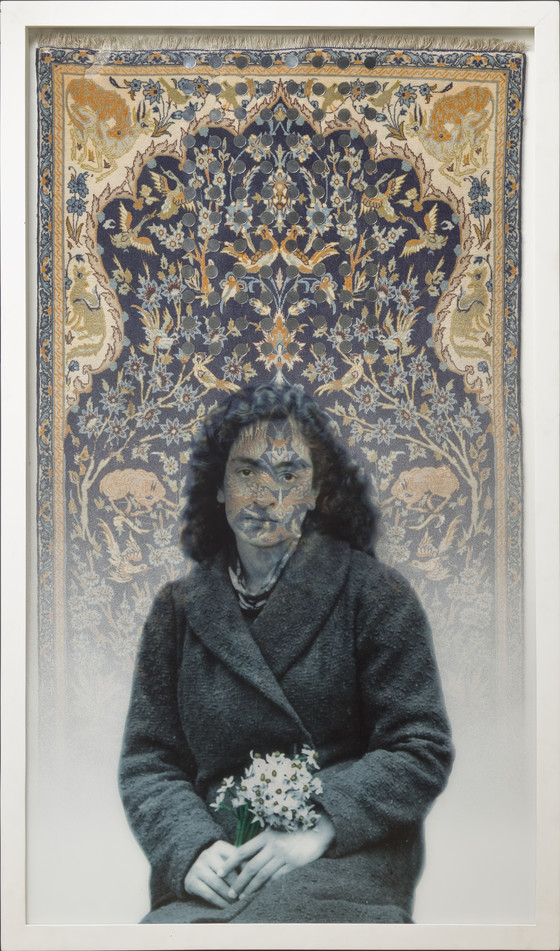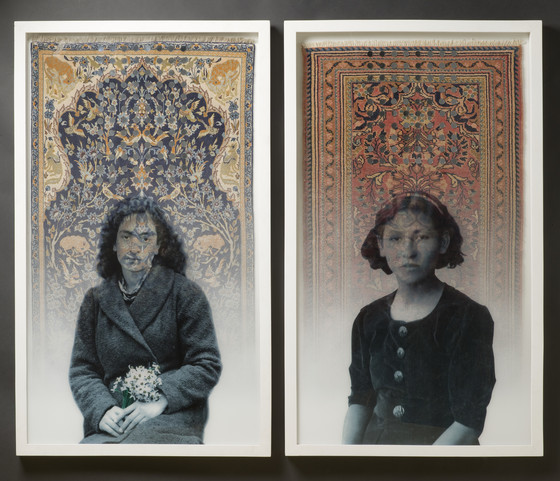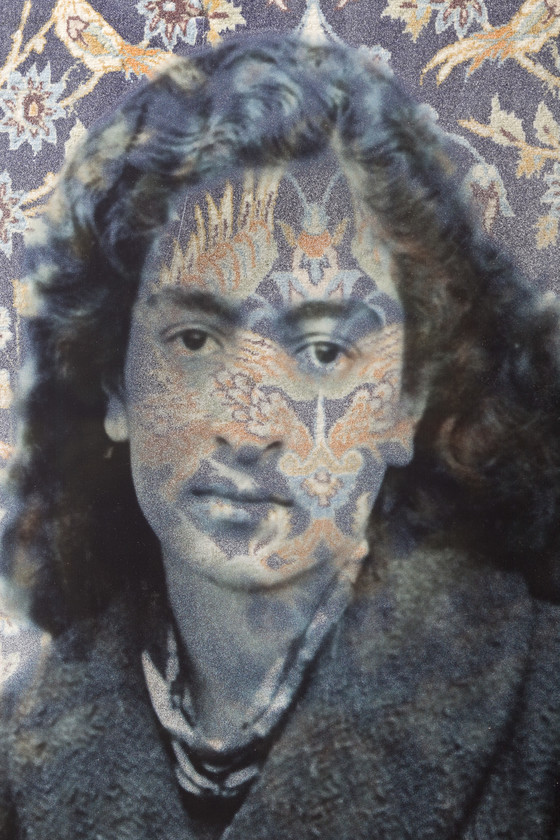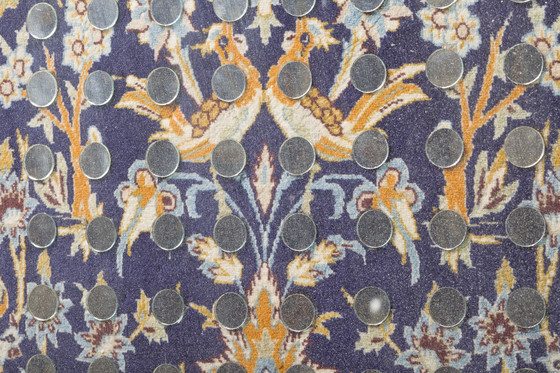Untitled
Please log in to add this item to your gallery.
View comments
No comments have been posted yet.
Add a comment
Please log in to add comments.
Please log in to add tags.
* Nearly 20,000 images of artworks the museum believes to be in the public domain are available to download on this site.
Other images may be protected by copyright and other intellectual property rights.
By using any of these images you agree to LACMA's Terms of Use.
Untitled
Collages
Persian wool carpet with mirror shards under plexi, photo printed on plexi
Framed: 57 1/4 x 33 5/8 x 1 7/8 in. (145.42 x 85.41 x 4.76 cm)
Purchased with funds provided by Anousheh and Ali Razi, and Mrs. Charlene S. Kornblum and Dr. S. Sanford Kornblum through the 2010 Collectors Committee (M.2010.45.1)
Not currently on public view



